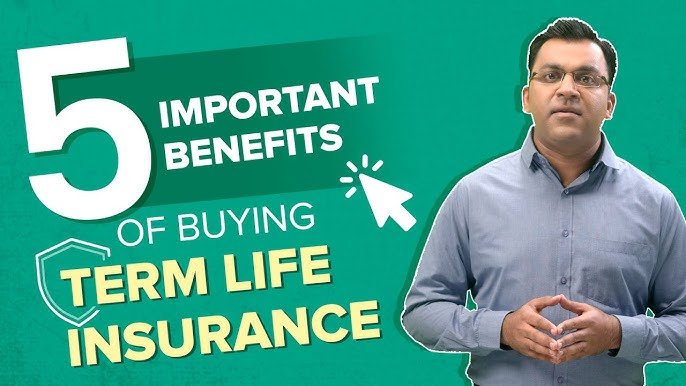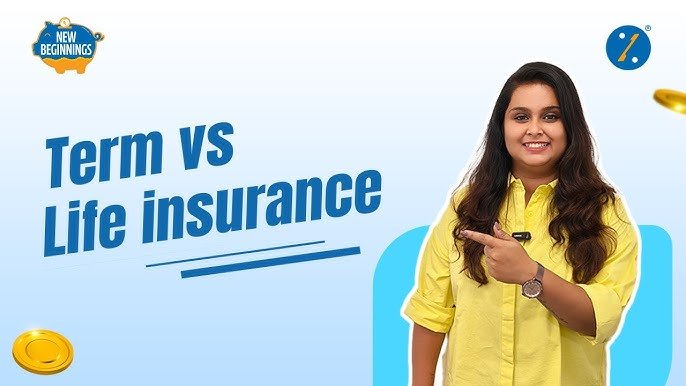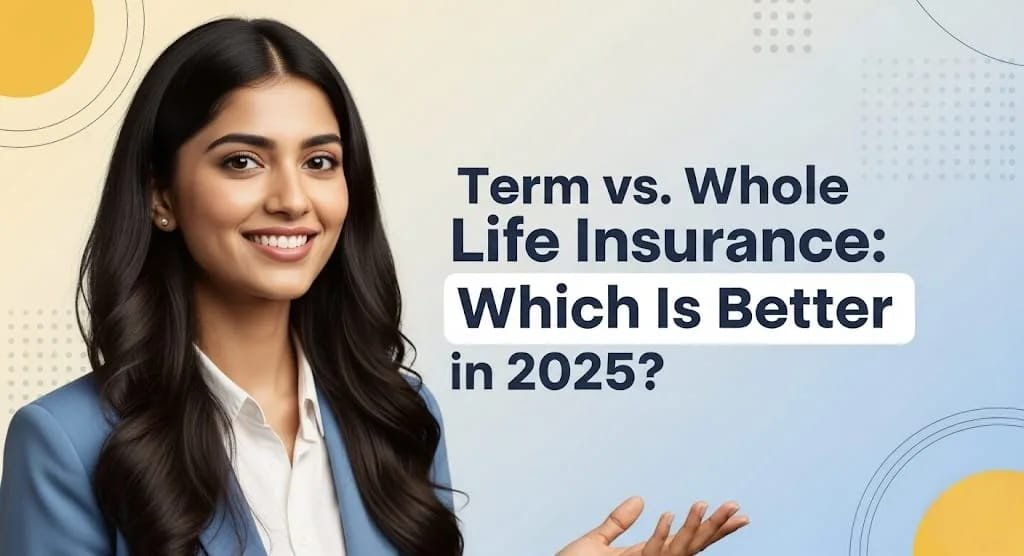The year 2025 has brought with it a new urgency Life Insurance in the matter of informed financial decision-making. Financial stability is important to the majority of individuals as economies are faced with a changing job market, inflation and growing family needs. Insurance is one of the main elements of all financial planning, and it is often asked whether it is necessary to take life insurance or to get the term insurance.
They are terms that are commonly applied interchangeably, yet they provide extremely different levels of protection. Knowing the difference between the two can make you wiser and more financially sound choice both on behalf of you and your family.

Term Insurance Life Insurance?
Firstly, it is necessary to figure out the meaning of each of the kinds of insurance. Term insurance is a simple policy, which pays a certain amount covering a definite period of time called the term. In case an insured individual dies within this term, there is a death benefit that is received by the nominee
Life on the other hand normally describes the whole life or endowment insurance. These are broader and will remain until the end of the policy-holder or a fixed date. Protection-Life insurance plans have both savings and investment. In whole life insurance, the death benefit is not affected by what time a policyholder dies in as long as the premiums are paid since this insurance has provided a guarantee of the payment of such benefit. Others policies also accrue cash value over the years, which one can borrow or can, withdraw.
Cost Comparison in 2025
The difference between them in 2025 is the most evident in cost. Term is by far the cheaper alternative. Again, a non-smoking individual of 30 years of age qualifies to take a large term policy at a comparatively cheaper premium. That is coverage under a life insurance policy would cost several times at the same standard. This price variation is as a result of the fact that the life insurance acts both as an insurance cover which is in it very costly and on the other hand, it builds a savings which adds to the liability of the insurer hence the cost.
Who Should Choose Term Insurance?
Term insurance is normally the best in case of affordability and maximum cover is your primary agenda. It would suit the assets of young workers, new-born parents or any individuals with great assets such as mortgages, credits or dependent relatives. As these obligations are usually taken over in a specific amount of time, covered by term insurance at the most appreciated moment.
Who Should Choose Life Insurance?
Nevertheless, there are those who will take the long term offerings of life insurance. Life insurance policy is not only meant to be protective or safeguarding, but a forced savings or investment. They are useful to those probably not able to save on their own, or those that want a guaranteed payout on the end of the policy. Moreover, some life insurance policies provide a bonus or dividends based on the good performance of the company which may raise the maturity or decrease the premium as the years pass.
Investment Value in 2025
In 2025 the insurance aspect particularly the investment aspect of life insurance is no longer as attractive as there are a plethora of other investment facilities with high performance. Mutual funds, ETFs, robots-advisors and online saving solutions are more flexible and usually, yield higher returns than investing in life insurance.
Most of the financial gurus today suggest keeping these two issues apart (investment and insurance). This would entail buying a cheap term life insurance cover and directing the savings in premiums to more lucrative financial products.

Policy Period and Payout
Another important consideration is how long the coverage will be. There can be a limited term life insurance policy that only stays active within a specific number of years. There is no benefit paid to you in the event you handily survive the policy term unless you have a kind of a return of premium feature that usually makes the policy a lot more expensive.
Unlike in the case of life insurance, life insurance protects you all through your lifetime, and that is why the nominee will obtain the payout regardless of the time of death as long as the insurance premiums had been duly paid. This is perceived as a sure strategy of leaving behind a monetary legacy.
Tax Benefits
Both of these kinds of insurance have tax advantages and these continue to be an appealing feature in 2025. Premiums paid on either term or life insurance policies can qualify tax deductions and the death benefits accrued are normally tax-free. Both give use to long-term tax planning; the dynamics of applicability varies with the policy of any nation and the nature of pay.
Which One Is Better in 2025?
It is quite possible to define which policy is better to define by your personal aims and life conditions. Term insurance can offer the highest level of protection and at the lowest possible cost provided your sole need is to have your family adequately financially taken care of in the event of your premature demise. It enables you to obtain extensive cover at a low premium and best suited when you have most responsibilities in life such as when you are in your working stage.
In contrast, life insurance can be more appropriate in the case of an individual who is financially stable, but seeks a guaranteed method of having a growth of savings coupled with future payout at the same time. It can particularly apply in estate planning or altar resources left to your close ones. Life insurance is also much more attractive to those approaching retirement or to those loth to manage their own investments.
Final Thoughts
In summary, term and life insurance are meant to accomplish different things. Term insurance is the best option in the event of short-medium period security during the years of vulnerability whereas life insurance in the event of long period security and savings. Which policy is best would depend on your age, income, financial goals and risk appetite.

One should then compare more than one policy, read the fine print carefully, and seek the help of a financial expert to make a decision. Ultimately, the most competitive insurance is the one that fits your life- not your bank account.




